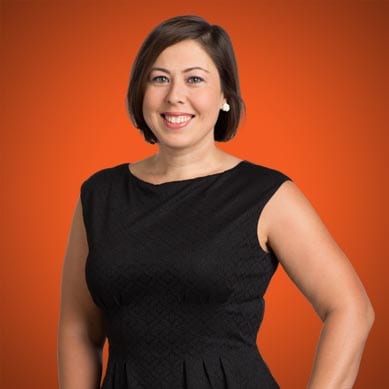Michelle Doose holds a PhD in epidemiology from Rutgers University. She is part of the Health Policy Research Scholars Cohort 2016.
Before we begin, tell us a little bit about yourself and what your research interests are?
My name is Michelle Doose, and I’m completing my doctorate in epidemiology this semester at Rutgers School of Public Health in New Jersey. A little bit about me – I was raised in the Antelope Valley (high desert north of Los Angeles) with my five brothers. My passion and drive to help others and to make a difference in the world comes from my inspirations: my mom (a political refugee from Cuba) and my dad (who was in foster care, and later adopted). For ten years, my family fostered over 30 children/teens and today we are an adoptive family.
My research interests are in the area of cancer prevention and control and are focused on healthcare delivery, care coordination, and cancer health disparities. My research interests have been informed by my past and current research activities, and work as a cancer advocate, as well as my personal experiences as a childhood cancer survivor.
What’s the story behind why you’re doing what you’re doing?
My interest in cancer care delivery began during my MPH training. I learned (for the first time!) that cancer survivors face unique health, psychological, social, and financial adverse effects because of the life-saving treatments needed to cure them of cancer. These effects can manifest during, shortly after, or many years after treatment. As a cancer survivor myself, I didn’t know I was at risk for these effects and neither did many of my doctors.
After my MPH, I pursued the opportunity to learn about and address the unmet needs of cancer survivors. As a health educator, I began to understand the systemic barriers survivors face when providing their survivorship care plan to their doctor or attempting to schedule appointments with specialists or obtaining health insurance. Some doctors disregarded their patient’s survivorship care plan or, in other cases, the patient’s insurer denied them access to care. Therefore, I decided to pursue a doctorate to learn new epidemiological and statistical methodologies in order to conduct research to identify and address cancer care inequities.
Tell us about a project you are currently working on that you are excited about?
I’m excited that my research is looking at care delivery from a multilevel perspective across several chronic health conditions. Specifically, diabetes and hypertension are two of the most common chronic health conditions that affect the breast cancer population. Clinical care management of these conditions during cancer treatment has not been well evaluated, especially among Black women, who disproportionally share the burden of these conditions. In addition, co-managing both breast cancer and another health condition requires a comprehensive, coordinated team of medical providers within and across health systems and medical practices. With support from the HPRS Dissertation Award, my doctoral research examined clinical care management of hypertension and diabetes during breast cancer care and examined whether patient, provider, and health system factors were associated with clinical care management and health outcomes among a cohort of Black breast cancer survivors.
For people unfamiliar with your research area, what is one piece of information you think is important for them to know?
This year, 1.7 million adults and 11,000 children (ages 0-14) in the United States will be diagnosed with cancer. Up to half (or more) may have at least one other chronic health condition at cancer diagnosis. Another 16.9 million people are cancer survivors including half a million adults of childhood cancer. It’s essential that we work outside our disease silos to address the complex health and social needs of patients with multiple chronic health conditions.
Who is a researcher you admire and why?
It has been an incredible experience to meet renowned researchers through the HPRS program. However, I am most humbled by the dedication and participation of patients in research studies to better the lives of others. People participate in studies knowing that they may not directly benefit from the research, but hope their experiences may save or improve the lives of others.
How has being an HPRS Scholar helped you during your time as a doctoral candidate?
Mentorship, networking, and funding from the HPRS program have catalyzed my success as a doctoral student. My HPRS mentor, Dr. Quynh Do, was instrumental in preparing me for postdoctoral applications and interviews. Through the RWJF network, I have met incredible researchers, change agents, and policymakers building a Culture of Health. The funding has protected my time to conduct multidisciplinary research, receive additional training, and attend conferences outside my academic discipline. Lastly, the support, guidance, and encouragement from other HPRS Scholars have made this doctoral journey possible.
In the RWJF HPRS program we have worked with you to help you think further about using your research to develop policy. If you could use your research to change any policy, what policy would it be?
Comprehensive, coordinated health care for all. Everyone deserves to achieve their best health and well-being including patients with chronic conditions and disabilities.
Ok, here’s a fun question to wrap things up. If you were stranded on a desert island, what three items would you want to have with you?
My dogs, music, and sunscreen!
Thank you so much for your time!

